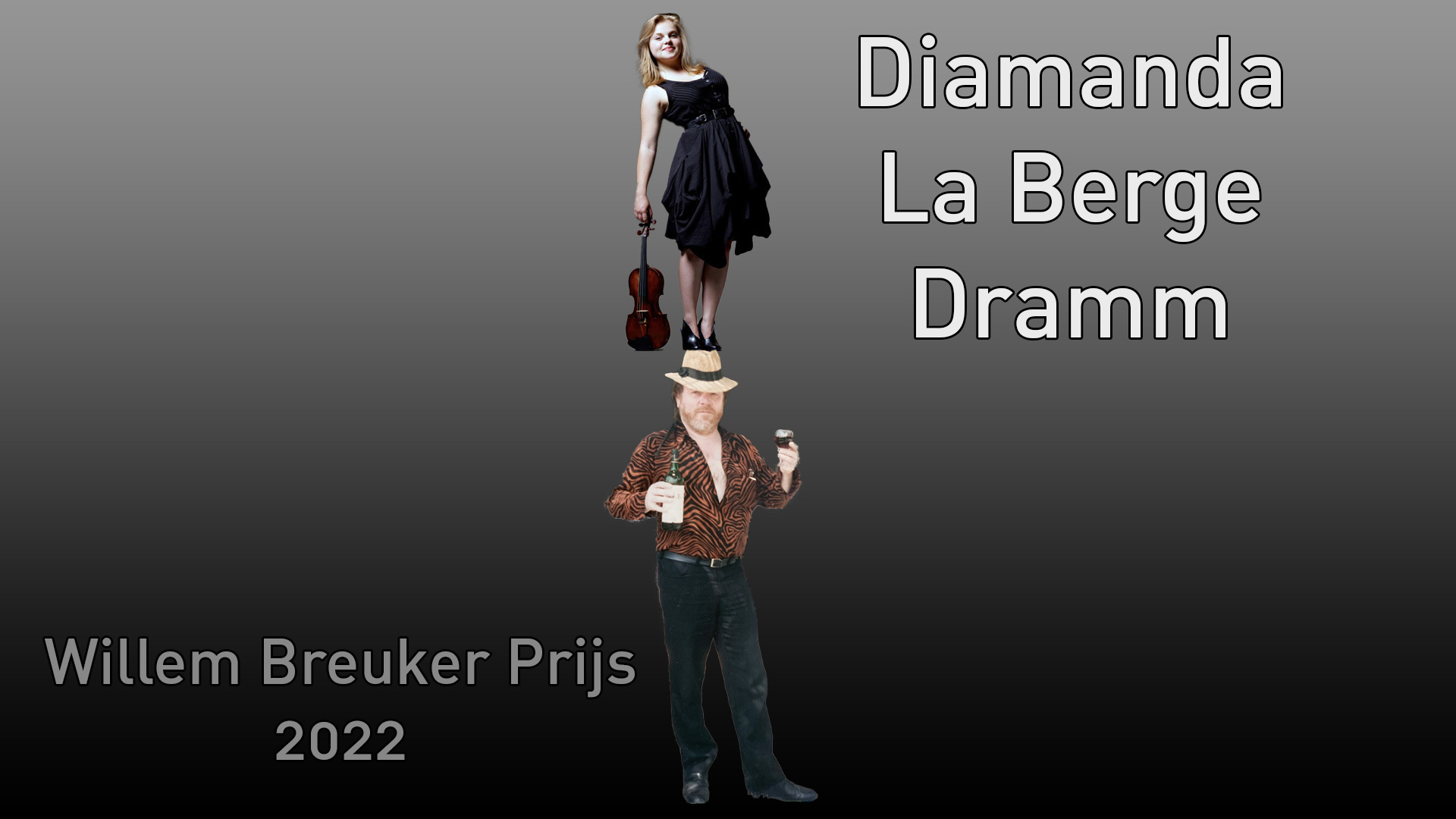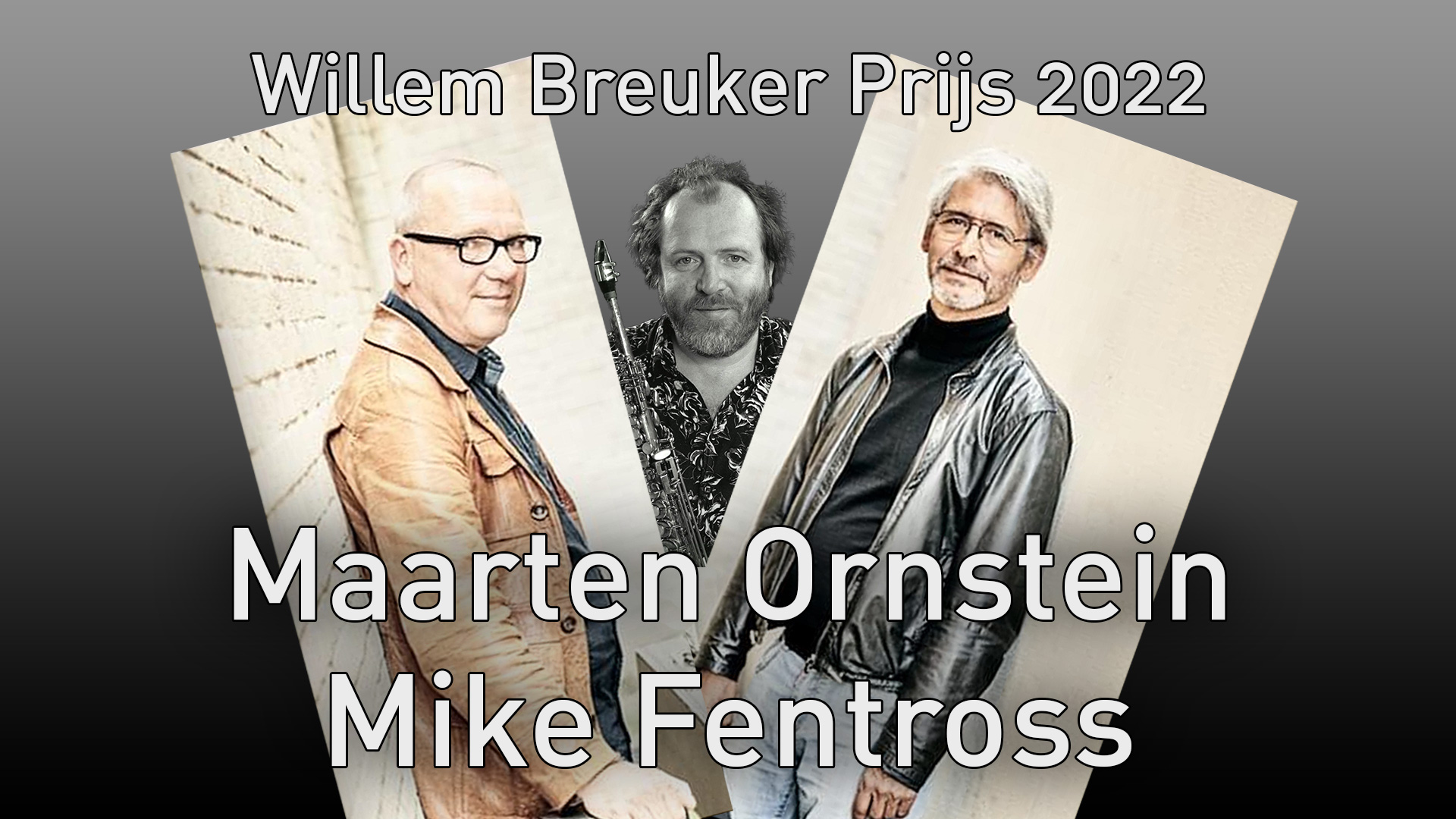With sorrow, the executive committee of the Stichting Willem Breuker (Willem Breuker Foundation) saw how musicians were forced to limit or cancel their performances during the lockdown periods. As a result, the Willem Breuker Prijs could not be awarded during the COVID era. Hence, the executive committee has decided to award two equal prizes, to make up for the lost years. It looks like more extraordinary music is being made today, even more so than ever.

Jury WB-prijs 2022:
Claron McFadden,
Neil van der Linden,
Rien de Reede.
Jury report Willem Breuker Prijs 2022 – Diamanda La Berge Dramm
Singing or using percussion in improvised and notated music (by Webern, Purcell, Ives and others) as an extra means of expression, beside her violin playing, comes natural to Diamanda La Berge Dramm. As a violinist, she performs at the highest level, but what really intrigues her, is expressing her own ideas, too. This is what she has to say about it: ‘For me, it’s a question of how I can find emotions within my own body and translate them into music.’ Cross-references with other artistic or musical disciplines may be helpful in this, as she proves in her subtle musical theatre production ‘Subverse’. Fanciful clothing and body language are emphatically part of this. She made the production ‘Vreemde streken’ with musical theatre group ‘Oorkaan’, an exuberant family show. She is an authentic presence in the instrumental domain, playing an exemplary role in using the instrument as a means and not as a goal.

Jury WB-prijs 2022:
Claron McFadden,
Neil van der Linden,
Rien de Reede.
Jury report Willem Breuker Prijs 2022 – Duo Maarten Ornstein, Mike Fentross
When you hear the recordings of improvisations by Maarten Ornstein and Mike Fentross, you can be sure that any combination of instruments would have incited them to make music. They opted for the well-nigh impossible combination of bass clarinet and lute. It is an example of the fact that music can be made with a great deal of fantasy, whatever the line-up may be. Their performance is characterized by the use of musical traditions that are put into perspective at the same time. This clearly puts them in the line of Willem Breuker’s musical heritage. They know how to place traditional elements in a contemporary framework, and present improvisations side by side with songs by Constantijn Huygens, translated into Arabic. These were sung by Rima Khcheich, thus subtly mixing old and new musical cultures from various parts of the world. They pile surprise upon surprise and explore the borders between West-European classical music, Baltic folklore and improvisation with the Estonian mezzo-soprano Kadri Tegelmann.
